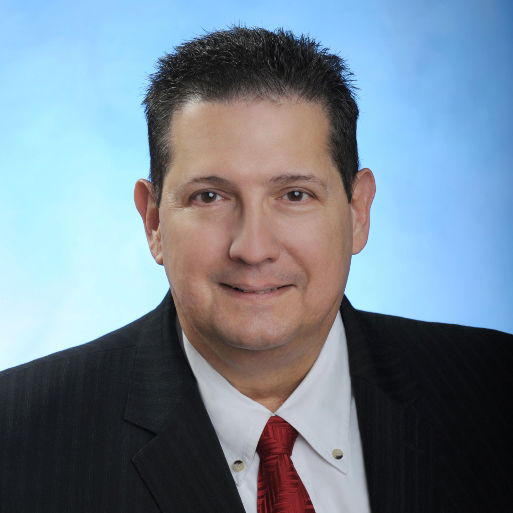Design of Experiments 101 - Methods and Analysis
December 12 - 13, 2024 | US Eastern Time: 10 AM to 4 PM | Central Europe Time: 4 PM to 10 PM
- Faculty: JOSÉ MORA
- Product ID: SEM1533
Learn More
| SEMINAR DESCRIPTION | WHO SHOULD ATTEND | |
In today's data-driven world, making informed decisions is crucial for success. Design of Experiments (DoE) provides a structured approach to investigate relationships between variables, eliminating guesswork of what is important, leading to reliable outcomes. DoE enhances efficiency by allowing simultaneous examination of multiple factors, saving time and providing a comprehensive understanding of systems. Professionals across various fields greatly benefit from using DoE. Scientists and researchers can conduct rigorous experiments, engineers can optimize manufacturing processes, pharmaceutical professionals can develop new treatments, and marketers can understand consumer behavior better. Mastering DoE is essential for effective decision-making, efficiency, and innovation. |
|
To harness the full potential of DoE, consider attending our 2-Day Virtual Seminar on Design of Experiments. You will be provided with practical insights and demonstration of DoE models. Whether you’re a scientist, engineer, marketer, or industry professional, this seminar will equip you with the skills to implement DoE effectively, driving success in your field.
LEARNING OBJECTIVES:
By the end of this seminar, participants will be equipped with the skills and requisite knowledge to effectively apply Design of Experiments in their work, leading to improved decision-making, efficiency, and innovation.
- Foundational Knowledge: Gain an understanding of the core principles and concepts of DoE.
- Experiment Planning: Develop the ability to effectively plan and design experiments, selecting appropriate variables and design types.
- Data Analysis Skills: Learn to analyze experimental data using statistical software and interpret results accurately.
- Practical Application: Apply DoE techniques to real-world problems, enhancing problem-solving skills and practical knowledge.
- Optimization: Understand how to use DoE for process optimization, improving efficiency, and achieving better outcomes.
- Best Practices: Learn best practices and strategies for implementing DoE in various professional fields.
- Advanced Techniques: Explore some of the advanced DoE techniques and their applications in complex scenarios
AGENDA
DAY 1 (10 AM to 4 PM) Session 1 - Introduction to Design of Experiments
Session 2 - Simple Comparative Experiments
Coffee Break Session 3 - Experiments with a Single Factor (One-way ANOVA)
Lunch Break Session 4 - Blocking Designs
| DAY 2 (10 AM to 4 PM) Session 5 - Factorial Designs
Session 6 - Factorial Designs
Coffee Break Session 7 - Advanced Experimental Designs
Lunch Break Session 8 – Regression Analysis in DoE
|
Course Directors: José Mora
 | José Mora is a Principal Consultant specializing in Manufacturing Engineering and Quality Systems. For over 30 years he has worked in the medical device and life sciences industry specializing in manufacturing, process development, tooling, and quality systems. Prior to working full time as a consulting partner for Atzari Consulting, José served as Director of Manufacturing Engineering at Boston Scientific and as Quality Systems Manager at Stryker Orthopedics, where he introduced process performance, problem solving, and quality system methodologies. During that time he prepared a white paper on the application of lean manufacturing methods to the creation and management of controlled documents and a template for strategic deployment. José led the launch of manufacturing at a start-up urology products company as Director of Manufacturing for UroSurge, Inc. at the University of Iowa's business incubator park in Coralville, IA, creating a world-class medical device manufacturing operation, with JIT, kanban systems, visual workplace and lean manufacturing practices. José worked for 10 years at Cordis Corporation, now a Cardinal Health company, where he led the successful tooling, process development and qualification of Cordis' first PTA (percutaneous transluminal angioplasty) catheter. |
His medical device experience includes surgical instruments, PTA & PTCA dilatation and guiding catheters, plastic surgery implants and tissue expanders, urology implants and devices for the treatment of incontinence, delivery systems for brachytherapy, orthopedic implants and instruments, and vascular surgery grafts and textiles. During his time at Cordis, José managed the Maintenance and Facilities Department, taking that operation to a level rated as tops by the UK Department of Health and Social Services (DHSS) during one of their intensive audits. Jose managed Manufacturing Engineering as part of the Guiding Catheter Core Team of managers, a team that took the Cordis Guiding Catheter business to lead the market, bringing it up from fourth place. By introducing world-class techniques, the Guiding Catheter design and manufacturing was completely re-engineered for robust design and tooling, under José's leadership.
He was also instrumental and played a leadership role in the complete re-engineering of the Tooling Control System, including design drafting, the tool shop and technical support. Wherever he has worked, he has a track record of introducing world-class methodologies such as Kepner-Tregoe, Taguchi techniques, Theory of Constraints, Lean Manufacturing, Five S (Visual Workplace), process validation to Global Harmonization Task Force standards, and similar approaches.